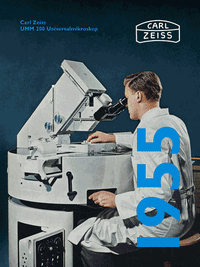MEDICAL DEVICES $1SXP (-0.47%)
Is Schott Pharma worth the entry?
With an issue volume of up to 987 million euros, Schott Pharma promises to be the largest IPO of the year in Germany. The share (29.00 euros; DE000A3ENQ51), which is already tradable at brokers as of its release, can still be subscribed to until September 27 in the range of 24.50 to 28.50 euros.
The specialist in drug storage and delivery systems is active in two very high-growth areas (mRNA therapies and GLP-1 drugs). Even with the expected allocation at the upper end of the range, the stock is attractively valued even compared to the competition.
First, on the numbers: Including the greenshoe, up to 34.6 million of the 150.6 million shares held by the parent company, Mainz-based Schott AG, which is part of the Carl Zeiss Foundation, will be listed on the Frankfurt Stock Exchange. Schott Pharma will not receive any fresh capital. At full allotment, the free float is 23%, although Qatar Holding has agreed to acquire up to 4.99% of the securities for 200 million euros. In total, the company is valued at 3.69 billion to 4.29 billion euros at the IPO - so this is a heavyweight with ambitions for inclusion in the DAX family landing on the trading floor.
Schott Pharma develops and produces glass syringes, polymer syringes, vials and ampoules for more than 1,800 customers worldwide. Every minute, around 25,000 injections are administered worldwide with the help of Schott Pharma products. The market for injectable drugs is expected to grow by more than 8% annually until 2026. The Mainz-based company itself is expected to generate sales of around EUR 890 million this year (as of September 30) with EBITDA of an estimated EUR 250 million (margin: 28%).
In the medium term, the company, which mainly benefits from structural growth drivers such as the use of special packaging for mRNA therapies (keyword: cooling below 100 degrees Celsius) and GLP-1 drugs (keyword: diabetes, obesity), is targeting sales growth in the low 10% range with an EBITDA margin of over 30%. Both are readily achievable, assuming sales growth of 12% p.a. with earnings growth of 19% p.a. through 2024/25.
Schott Pharma is less comparable with Gerresheimer, which is somewhat more diversified, but rather with pure medical specialists such as the Italian Stevanato or the US Becton Dickinson. According to calculations, this comparison turns out favorably: Schott Pharma is valued even at the upper end of the subscription range only at about 17 times the future expected EBITDA. In the case of the competitors, this ratio is significantly higher at 25 times EBITDA, with their EPS growth estimated to be significantly lower (Stevanato: 13% p. a.; Becton Dickinson: 6% p. a.). The situation is similar for the P/E ratio: Schott Pharma is calculated at 25 times expected earnings for 2023/24, Becton Dickinson at 42 times and Stevanato at 40 times. Since the books were oversubscribed just a few hours after opening, I assume an allocation at the upper end of the range.
I subscribed because of the growth opportunities of the attractive valuation due to a nearly net debt-free balance sheet.








